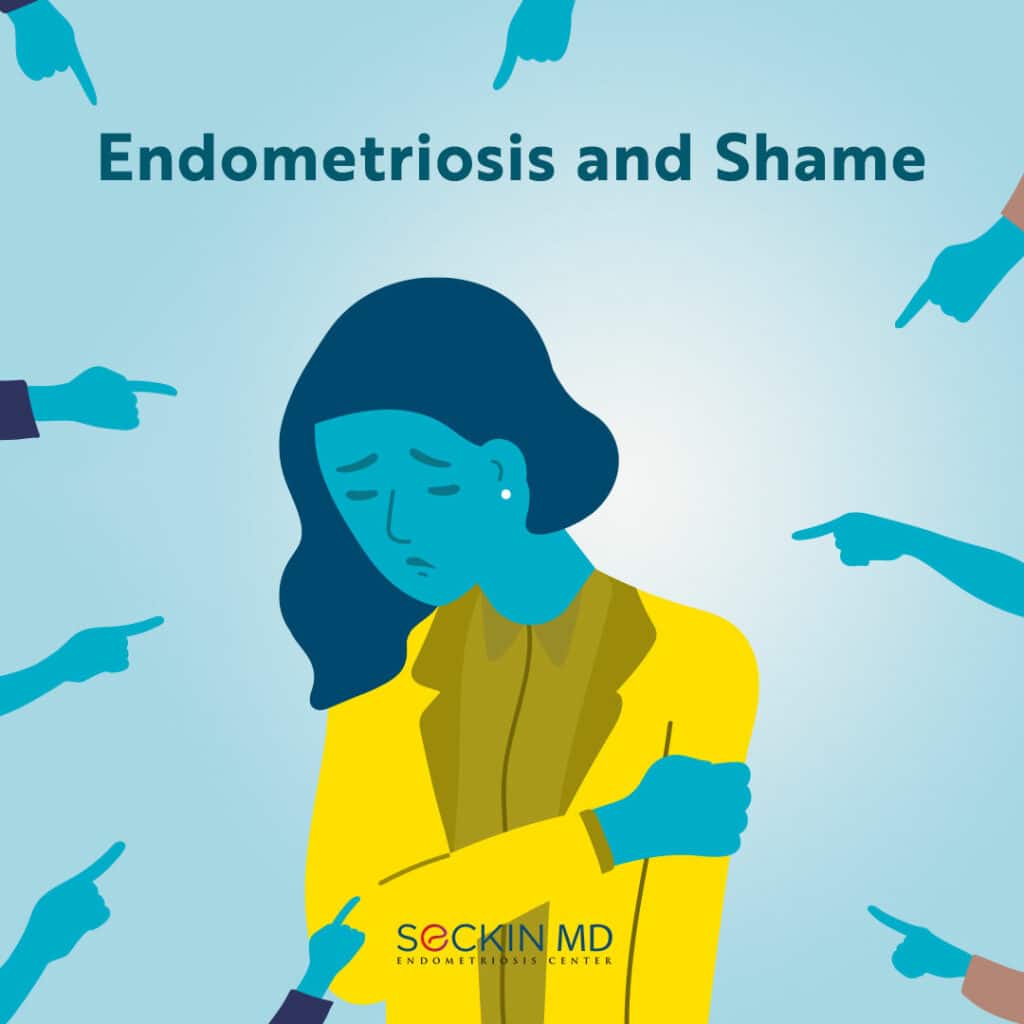Endometriosis and Shame

Endometriosis has been historically associated with social stigma and downplaying of symptoms from family, friends, coworkers, and healthcare providers alike. This has caused women with the disease to have feelings of shame.
Stigma and shame associated with endometriosis
Women with chronic pelvic pain historically were considered to be emotionally unstable, unpredictable, and hysterical. Often, doctors themselves linked their symptoms to promiscuity.
Our present understanding of endometriosis shatters all these baseless notions. However, the stigma and shame have somehow survived to date.
In many families, mothers tell their daughters that the heavy bleeding and pain they experience are normal.
Endometriosis misinformation is still common as well in the medical community. This leads to a misdiagnosis of endometriosis, which can result in an average delay of up to 10 years in receiving treatment. During this long period of uncertainty, women experience debilitating pain and psychological trauma that affects their personal and professional lives.
Women also attest that some healthcare providers talk to them in a condescending manner and a way that invalidates their emotions.
Treatments when performed inappropriately such as hysterectomy or oophorectomy often unnecessarily lead to permanent infertility that can be traumatic.
Once confirmed, a diagnosis of endometriosis can also take a significant toll on various aspects of a woman’s personal and professional life.
Studies have also reported a significant increase in anxiety and depression leading to lower self-esteem and a poor body image among women with endometriosis.
Tackling endometriosis-related stigma
The lack of proper studies on endometriosis-related stigma and shame creates huge gaps in our understanding of this critical area. It goes without saying that more qualitative studies that factor in endometriosis-related stigma is necessary.
More research is also necessary on demographics to understand the prevalence, extent, and implications of endometriosis-related stigma. Unlike diseases such as HIV, HCV, and tuberculosis, which have well-developed and validated scales, currently, there is no scale to assess the stigma surrounding endometriosis.
Widespread awareness campaigns involving the public and policymakers can abolish popular misconceptions about the disease and foster an environment of empathy and support. The Endometriosis Foundation of America’s Hill Day and the Endometriosis Education Program are a few examples of impactful awareness campaigns.
Interventions are necessary to prevent self-criticism and body image concerns and to combat those who indulge in stigmatization. The healthcare industry should acknowledge that discrimination and lack of empathy towards endometriosis patients are a reality. And we should take a hard public stance against such practices.
Did you ever feel ashamed for having endometriosis? Please do not hesitate to leave a comment on our post on Facebook or Instagram if you wish.
Get a Second Opinion
Our endometriosis specialists are dedicated to providing patients with expert care. Whether you have been diagnosed or are looking to find a doctor, they are ready to help.Our office is located on 872 Fifth Avenue New York, NY 10065.
You may call us at (646) 960-3080 or have your case reviewed by clicking here.